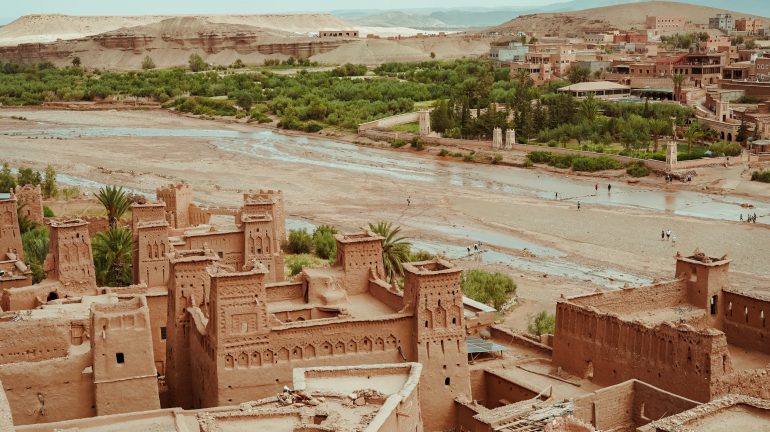City names are more than just markers on a map. They carry the weight of history, culture, and identity, shaping how both locals and outsiders perceive them. Some names reflect geography, while others tell stories of conquest, resilience, or transformation.
The names offer glimpses into their pasts and the roles they continue to play today. Understanding their meanings is a way to appreciate the depth of these cities and their impact on the region!
1. Cairo, Egypt: The Conqueror
Cairo’s Arabic name, Al-Qahirah, translates to “The Conqueror” or “The Vanquisher.” The Fatimid general Jawhar al-Siqilli founded the city in 969 AD as the new capital of the Fatimid Caliphate. Initially named Al-Mansuriyyah, it was later renamed Cairo to signify its strength in overcoming enemies.
Over the centuries, Cairo lived up to its name, becoming the heart of the Arab world in politics, culture, and history. Its towering mosques, ancient markets, and sprawling streets reflect this grand identity. Yet, beneath its powerful name, Cairo remains a city of contrasts—chaotic but resilient, modern yet deeply tied to its past.
2. Algiers, Algeria: The Islands
Algiers, or Al-Jazair, means “The Islands,” a name derived from the four small islets that once lay off its coast. Founded in 960 AD by Bologhine ibn Ziri on the ruins of the Phoenician city Icosium, Algiers has carried various names throughout history, including “The Guarded” and “The White City,” referencing its architecture.
While the Ottoman era saw its name extend to the entire country, its original meaning still reflects the city’s maritime heritage and its deep connection to the Mediterranean.
3. Riyadh, Saudi Arabia: The Gardens
Riyadh, derived from Rawḍah, means “gardens” or “meadows.” The name reflects the city’s origins as a lush area amid the arid landscape, nourished by underground water sources. Historically, the region has been inhabited for thousands of years, with the ancient city of Hajr, the capital of Al-Yamamah, serving as a significant trade and political center.
By the 18th century, Riyadh emerged as a key stronghold of the First Saudi State. Today, despite its towering skyscrapers, the city’s name continues to symbolize renewal and prosperity, echoing its transformation from a small oasis into a modern capital.
4. Doha, Qatar: The Big Tree
Doha’s name comes from Ad-Dawḥa, which in Arabic refers to a great, sprawling tree with wide branches offering shade and shelter. Historically, the city was abundant in such trees, particularly around the bay, which some believe also contributed to its name.
While Doha has transformed into a modern metropolis, its name remains a nod to its natural past. Although urban expansion has replaced much of its greenery with steel and glass, efforts to restore its lush origins through parks and green spaces continue to shape its identity.
5. Marrakesh, Morocco: Land of God
Marrakesh is one of the few major cities in the Islamic world built from scratch rather than atop older settlements. Founded in 1070 by the Almoravids, its name likely derives from the Amazigh (Berber) phrase “Amur n’Akush,” meaning “Land of God.”
Some historians suggest alternate origins, such as “Amurkus” (hidden place) or a reference to a local well. Regardless, Marrakesh’s significance was so profound that its name became synonymous with Morocco itself. Today, the city’s rich heritage is reflected in its bustling souks, ancient palaces, and desert landscapes, solidifying its legacy as a cultural crossroads.
The Meaning Behind the Map
City names aren’t just words; they shape identity, history, and perception. Cairo’s power, Riyadh’s growth, Doha’s green roots, Marrakesh’s cultural influence, and Algiers’ Mediterranean ties all tell stories that extend far beyond their letters.
These names remind us that cities are living entities, constantly evolving while staying tied to their pasts. So, the next time you visit a city, ask yourself—what does its name reveal about the place and its people?
WE ALSO SAID: Don’t Miss…From Egypt to Lebanon: The Oldest Countries in the Middle East



